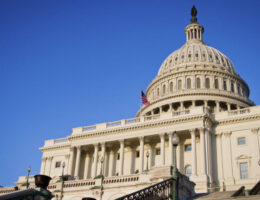On 6 March 2024, California Assistant Attorney General Paula Blizzard announced at the American Bar Association’s annual National Institute on White Collar Crime the state’s intentions to reinvigorate criminal enforcement of the Cartwright Act, California’s primary antitrust statute. California has not criminally prosecuted violations of the Cartwright Act in 25 years. Blizzard’s announcement comes shortly after California enacted legislation to codify restrictions against no-poach and non-compete clauses. All-in-all, state officials appear poised to follow in the Biden administration’s footsteps and increase antitrust enforcement. Companies should be on notice of certain states like California that are taking steps to strengthen antitrust enforcement and alleged agreements to fix prices, divide markets, and rig bids could soon lead to criminal penalties under either state or federal statutes.
Author
Allison Simkins
BrowsingAllison is a member of the Firm's Antitrust & Competition Practice Group, based in Washington, DC. Prior to joining the Firm, Allison worked as an associate for another multinational law firm and also clerked for the US District Court for the Southern District of Texas.
